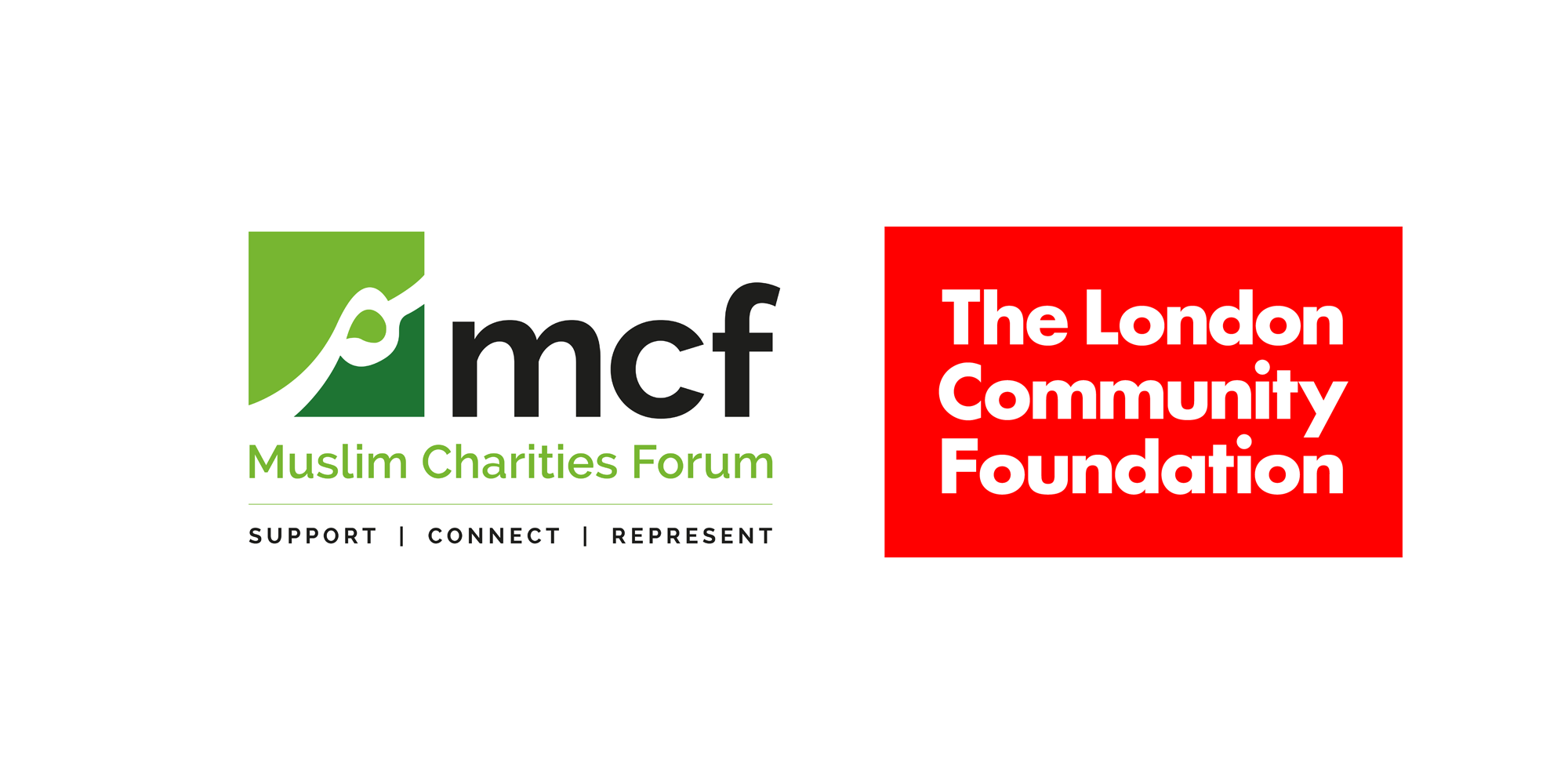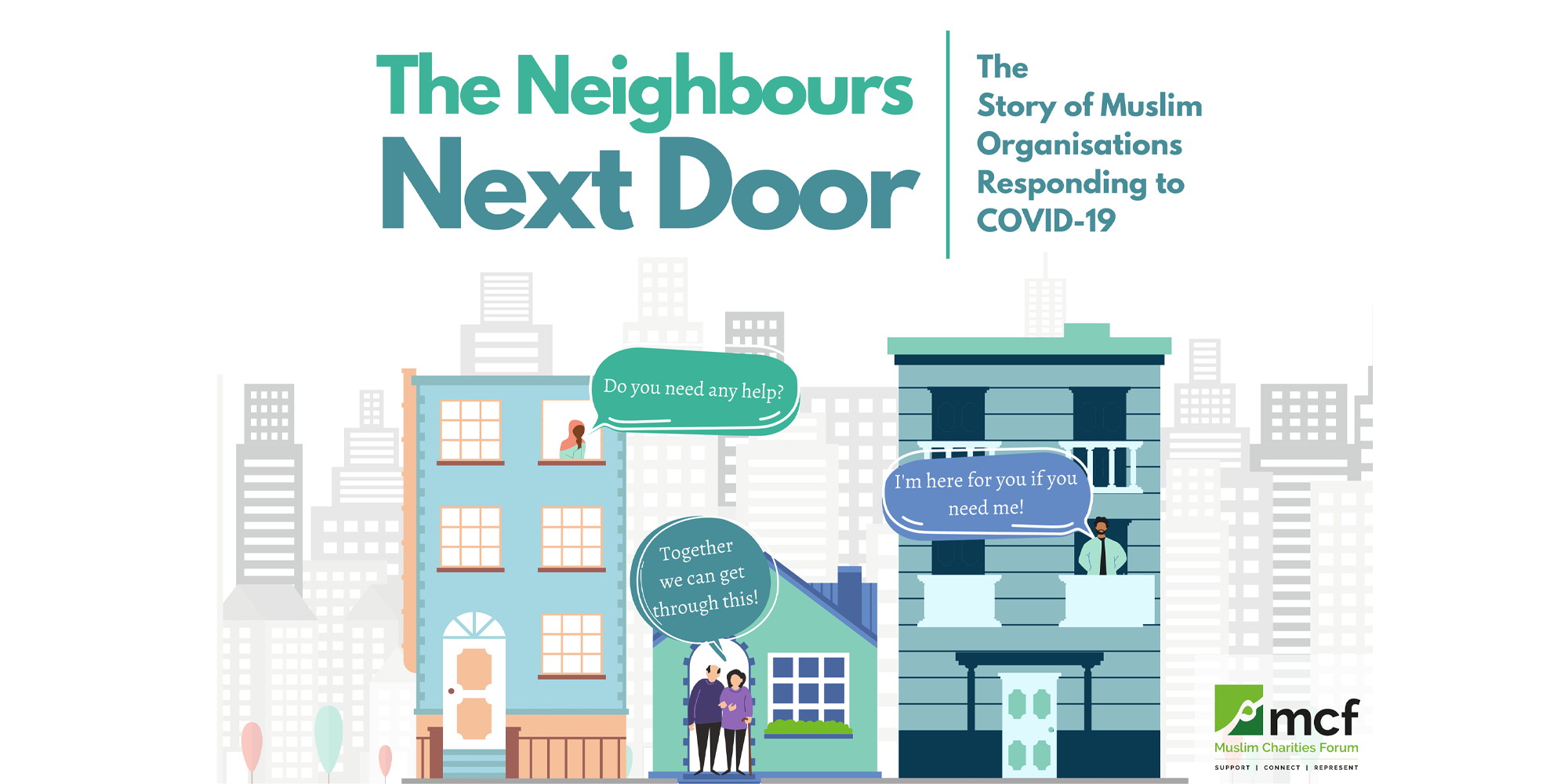
In August 2020, Muslim Charities Forum (MCF) entered a strategic partnership with The London Community Foundation (LCF). This new relationship was born from the needs arising during the ongoing Covid-19 pandemic and the first lockdown – small, grassroots charities were struggling to cope with increased demand and decreasing resources, which was exacerbated for Muslim-led small charities and those supporting Black people and communities experiencing racial injustice. We are now pleased to publish a report on the findings, reflections and recommendations to other funders of the partnership.
The partnership between MCF and LCF was formed to encourage and support more Muslim-led groups to apply to the London Community Response (LCR). The LCR was established as a collaborative effort of 67 London based funders in response to the emergency needs arising due to the Covid-19 pandemic, providing one application, and streamlined approach for distributing urgent funds. MCF and LCF worked together to develop a two-way learning process for community groups and funders, for Wave 4 (December 2020) and Wave 5 (January/February 2021) of the London Community Response.
Through contacting directly and gathering opinion from over 50 Muslim-led London grassroots organisations, common themes informed the approach of the partnership with a series of informative webinars, roundtables and one-to-one specialist grant application coaching and support. Through these activities in the approach to Wave 4 and Wave 5 of the London Community Response Fund, several themes emerged:
Time: Many organisations reported that they simply did not have the time to devote to application writing, especially during the challenging times of the pandemic. As volunteer-run groups or with paid staff stretched way beyond limit in delivering front-line and crisis response to marginalised communities, time was serious barrier to knowing, understanding and accessing mainstream funding.
Expertise: A lack of appropriate skill set or training, coupled with lack of experience, left many organisations lacking confidence in making grant applications. Unfamiliar processes, lengthy application forms and onerous questions were overwhelming.
Communication: Without previous experience of the grant funding arena, several charities reported that they did not know where to look for open grant opportunities. Furthermore, many reported that they felt this communication (where they could find it), to be one-sided. Respondents reported that they wanted the chance to forge conversations, explain their work and its context and to talk about their needs with funders. And with feedback as to why their applications are not successful.
Trust and understanding: One of the biggest worries from the surveyed group was about a lack of understanding of the work of Muslim-led organisations and faith-based groups in general. Respondents reported thinking that they could not apply to funding streams, believing that religious organisations were not eligible. Some also reported a fear of being stereotyped. More felt that the work of Muslim organisations was simply misunderstood.
The work of MCF and LCF in partnership formed a foundation of support in hearing, recognising and addressing these needs. Through webinar support, valuable roundtable discussion and free support from a grants specialist, many were encouraged to make applications to both Wave 4 and Wave 5 (Renewal and Crisis), applying for sums of to fund emergency project work and vital core costs.
- 148 engagements made by organisations to MCF x LCF partnership activities for Wave 4 and Wave 5. These activities took the form of webinars, discussions, grant support calls and resources.
- 57 organisations accessed the offer of free grant support and coaching.
- 21 grass-roots groups made first-time applications to Wave 4 of the LCRF.
- 15 small organisations secured vital funding, totalling almost £163,000 in new income to disadvantaged BAME and Muslim communities.
- Organisations secured funds from £5000 - £22,000 in a mixture of emergency relief projects and core costs.
Following Wave 4, London Funders announced that almost 50% of those awarded funding were from organisations led by Black people and those experiencing racial injustice. With equity and inclusion as a priority, this was an important result, signalling the need across the capital for grass-roots community groups to tap into much-needed funds. Evidence secured from Wave 5 indicates that this vital equality continues with London Funders understanding the value of BAME-led charities and grassroots groups in providing trusted aid to marginalised and disadvantaged people.
LCF’s support to Muslim Charities Forum has paved the way for further future collaboration that hopes to re-shape the funding landscape for Muslim and BAME small charities. The effects of Covid-19 are ongoing and the coming months remain uncertain for the charity sector. However positive, mutually beneficial partnership work as demonstrated by MCF and LCF strengthens the outlook for all charities, furthering the relationships between mainstream bodies and under-represented groups. Most of all, this work highlights and empowers the amazing, responsive work of grassroots groups in helping London’s most disadvantaged people – ensuring those in need can access vital support.

